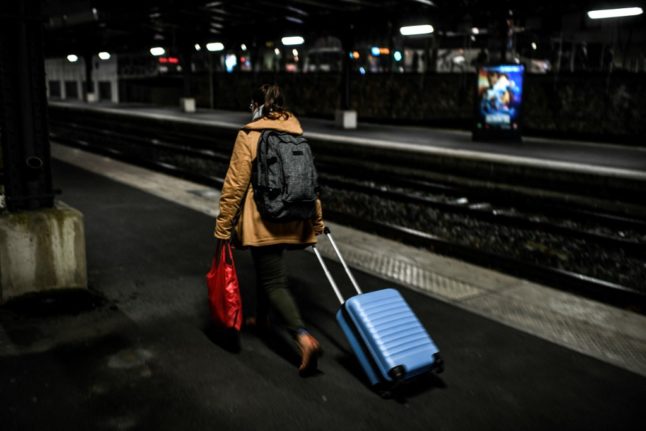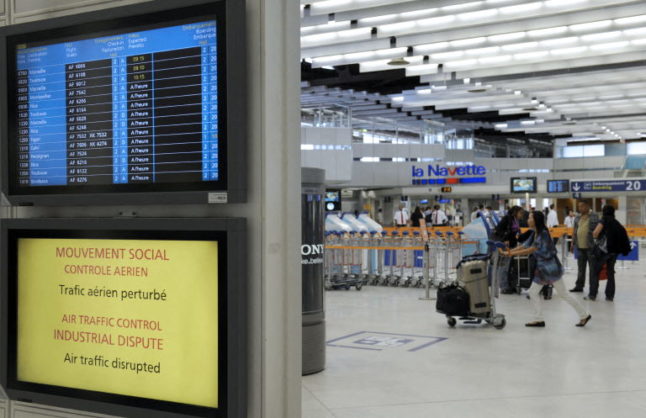France isn’t currently on the Covid red list for any country, so there is nowhere that is barred to you as a French resident, but different countries still have different entry requirements.
EU/Schengen zone
If you’re travelling to a country that is within the EU or Schengen zone then it’s pretty straightforward.
If you’re fully vaccinated then all you need is proof of vaccination at the border – no need for Covid tests or extra paperwork. Bear in mind, however, that if your second dose was more than nine months ago you will need a booster shot in order to still be considered ‘fully vaccinated’.
READ ALSO Everything you need to know about travel to France from within the EU
If you were vaccinated in France then you will have a QR code compatible with all EU/Schengen border systems. If you were vaccinated elsewhere, however, your home country’s vaccination certificate will still be accepted.
If you’re not fully vaccinated you will need to show a negative Covid test at the border, check the individual country for requirements on how recent the test needs to be.
Bear in mind also that several EU countries still have mask/health pass rules in place and some countries specify the type of mask required, for example an FFP2 mask rather than the surgical mask more common in France. Check the rules of the country that you are travelling to in advance.
If you’re travelling to a country covered by The Local, you can find all the latest Covid rules in English on the homepages for Austria, Denmark, Germany, Italy, Norway, Spain, Sweden or Switzerland.
UK
The UK has no Covid-related travel rules, so there is no requirement for tests even if you are not vaccinated. The passenger locator form has also been scrapped – full details HERE.
Once there, there are no Covid-related health rules in place.
If you’re travelling between France and the UK, remember the extra restrictions in place since Brexit.
USA
Unlike the EU, the USA still has a testing requirement in place, vaccinated or not. You would need to show this prior to departure.
It has, however, lifted the restrictions on non citizens entering, so travel to the USA for tourism and visiting friends/family is once again possible.
For full details on the rules, click HERE.
Once there, most places have lifted Covid-related rules such as mask requirements, but health rules are decided by each State, rather than on a national level, so check in advance with the area you are visiting.
Other non-EU countries
Most non-EU countries have also lifted the majority of their Covid related rules, but in certain countries restrictions remain, such as in New Zealand which is reopening its border in stages and at present only accepts certain groups.
Other countries also have domestic Covid restrictions in place, particularly in China which has recently imposed a strict local lockdown after a spike in cases.
Returning to France
Once your trip is completed you will need to re-enter France and the border rules are the same whether you live here or not.
If you’re fully vaccinated you simply need to show your vaccination certificate (plus obviously passport and residency card/visa if applicable) at the border.
If you’re not vaccinated you will need to get a Covid test before you return and present the negative result at the border – the test must be either a PCR test taken within the previous 72 hours or an antigen test taken within the previous 48 hours. Home-test kits are not accepted.
If you’re returning from an ‘orange list’ country and you’re not vaccinated you will need to provide proof of your ‘essential reasons’ to travel – simply being a resident is classed as an essential reason, so you can show your carte de séjour residency card, visa or EU passport at the border.
Even if the country that you are in is reclassified as red or orange while you are away, you will still be allowed back if you are a French resident. If you’re not a French passport-holder, it’s a good idea to take with you proof of your residency in France, just in case.
Fully vaccinated
France counts as ‘fully vaccinated’ those who:
- Are vaccinated with an EMA-approved vaccine (Pfizer, Moderna, AstraZeneca or Johnson & Johnson)
- Are 7 days after their final dose, or 28 days in the case of the single-dose Johnson & Johnson vaccines
- Have had a booster shot if more than 9 months has passed since the final dose of your vaccine. If you have had a booster shot there is no need for a second one, even if more than 9 months has passed since your booster
- Mixed dose vaccines (eg one Pfizer and one Moderna) are accepted



 Please whitelist us to continue reading.
Please whitelist us to continue reading.
Member comments